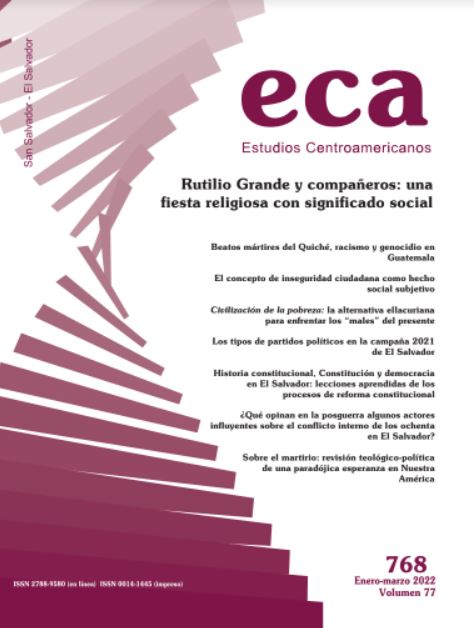Abstract
This article aims to reflect on the processes oriented to the generation of proposals for constitutional change in the Latin American context, and particularly in El Salvador, from a historical analysis perspective.
Through constitutional history we can identify and make visible the forces, interests and intentions present in the initiatives of constitutional reform or change, showing that in many cases the narrative of constitutional changes does not necessarily have a direct relationship with the intentionality of the interest groups of the actors interested in the reform.
Sometimes, as we say in good Salvadoran, legal reforms -including constitutional reforms- are only a "salute to the flag", but on other occasions, -especially in those processes that have started from an open, democratic and participatory process that has taken into account those voices that are not the majority, reforms and legal frameworks that have an impact on the daily reality can be included...and on other occasions, the reforms or changes seek objectives or goals that are not explicit.
Through an exercise of historical analysis of constitutional reform processes in El Salvador, particularly of the reform processes that achieved a change of the Constitution during the stage known as el Martinato in El Salvador, we can observe how the initiatives of constitutional change or reform can be oriented to generate impacts that were not initially foreseen, even when the reform process itself involves actors that seek to positively influence the improvement of the normative frameworks.Traducción al Inglés.
Likewise, this exercise shows us that social movements and processes can be alien to the processes of constitutional reform or change, preventing or limiting the effects of a new regulatory framework, on the one hand, when they are alien to the community and the population or, the community could not see the political background if what is intended is to give legitimacy to an illegitimate government.
ECA Estudios Centroamericanos, Vol. 77, No. 768, 2022: 87-104.

This work is licensed under a Creative Commons Attribution-NonCommercial-NoDerivatives 4.0 International License.
Copyright (c) 2022 Roberto Rodríguez Meléndez





